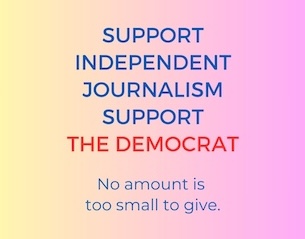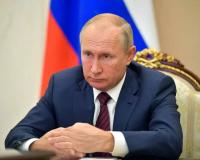- World
- Who is Naftali Bennett, Israel’s New Prime Minister?
Who is Naftali Bennett, Israel’s New Prime Minister?
A hardline religious-nationalist, multi-millionaire former tech entrepreneur and former defence minister, 49-year-old Naftali Bennett is Israel’s new prime minister after parliament approved a new government on Sunday. The 120-member Knesset voted in favour of a coalition put together by centrist Yair Lapid, with a razor-thin majority but enough to end Prime Minister Benjamin Netanyahu’s 12
A hardline religious-nationalist, multi-millionaire former tech entrepreneur and former defence minister, 49-year-old Naftali Bennett is Israel’s new prime minister after parliament approved a new government on Sunday.
The 120-member Knesset voted in favour of a coalition put together by centrist Yair Lapid, with a razor-thin majority but enough to end Prime Minister Benjamin Netanyahu’s 12 unbroken years at the helm.
One-time special forces commando, Bennett leads the right-wing Yamina party, which has called for Israel to annex parts of the occupied West Bank. He will be Israel’s first premier to openly lead a religious lifestyle, and the first to sport the kippa ( a small skullcap worn by religious Jewish men.)
An Ultra Nationalist & hard-right leader
Son of American-born parents who speaks perfect English, Bennett is a religious Jew who made millions in the mostly secular hi-tech sector. Bennett began life with his parents in Haifa, then kept moving with his family between North America and Israel, military service, law school and the private sector. Throughout, he’s curated a persona that’s at once modern, religious and nationalist. After serving in the elite Sayeret Matkal commando unit, Bennett went to law school at Hebrew University. In 1999, he co-founded Cyota, an anti-fraud software company that was sold in 2005 to U.S.-based RSA Security for $145 million.
Bennett has said the bitter experience of Israel’s 2006 war against the Lebanese militant group Hezbollah drove him to politics. His views are out and open, in a video posted on his official YouTube page presents a colourfully animated account of the far-right politician’s plan, with a lighthearted tone that belies its deeply serious message.
“There are some things that we all know will never happen,” says a narrator in a carefree voice. “The Sopranos will never return for another season … And a peace agreement with the Palestinians will not happen.”
Rivalry with Former Prime Minister Benjamin Netanyahu
After 12 years, no one expected the 71-year-old Netanyahu, dubbed the “King of Israel” by his supporters, to quietly retire to his private home in the seaside town of Caesarea. Bennett, already branded a traitor by much of the right-wing base he shares with Netanyahu, heads a tiny party. Bennett has served as head of the West Bank settler’s council, Yesha, before entering the Knesset in 2013. He later served as cabinet minister of diaspora affairs, education and defense in various Netanyahu-led governments.
Long positioned himself to the right of Netanyahu, Bennett campaigned as a right-wing stalwart ahead of the March elections and signed a pledge on national TV saying he would never allow Yair Lapid, a centrist and Netanyahu’s main rival, to become prime minister. But when it became clear Netanyahu was unable to form a ruling coalition, that’s exactly what Bennett did, agreeing to serve as prime minister for two years before handing power to Lapid, the architect of the new coalition.
Bennett fiercely criticized Netanyahu after the prime minister agreed to slow settlement construction under pressure from President Barack Obama, who tried and failed to revive the peace process early in his first term. “He’s a right-wing leader, a security hard-liner, but at the same time very pragmatic,” Yohanan Plesner, head of the Israel Democracy Institute told Associated Press. Plesner has known Bennett for decades and served with him in the military.
He expects Bennett to engage with other factions to find a “common denominator” as he seeks support and legitimacy as a national leader.
Israel’s New PM and diplomatic Ties with India
After recent attacks between Israel and Gaza, Ambassador T.S. Tirumurti, India’s permanent representative at the UN responded and urged, “both sides to show extreme restraint, desist from actions that exacerbate tensions, and refrain from attempts to unilaterally change the existing status-quo, including in East Jerusalem and its neighbourhood.”
India and Israel have enjoyed strong bilateral ties since 1950 with Indian PM Jawaharlal Nehru reiterating it’s position on the recognition of Israel as a state. Today, India is the largest buyer of Israeli military equipment and Israel is the second-largest defence supplier to India after Russia. India is Israel’s third-largest Asian trade partner, and tenth-largest trade partner overall.
India’s relationship curve with Israel has always been active and it further grew during Prime Minister Narendra Modi‘s administration, with India abstaining from voting against Israel in the United Nations in several resolutions. Apart from the above, India and Israel have been engaging in expanding diplomatic ties through bilateral talks and coalition initiatives towards agricultural cooperation, water accessibility and oil and natural gas cooperation.
Bennett and Palestine
Bennett has strongly opposed to Palestinian independence and strongly supports Jewish settlements in the occupied West Bank and east Jerusalem, which the Palestinians and much of the international community see as a major obstacle to peace. In a series of incediary comments against Palestine, in 2013, Bennett said Palestinian “terrorists should be killed, not released”. He also argued that the West Bank was not under occupation because “there was never a Palestinian state here”, and that the Israeli-Palestinian conflict could not be resolved but must be endured, like “shrapnel in the buttocks”.
However, any push against Palestinians would risk Bennett’s position given the fragility of the coalition supported by an Arab party. In such a situation, the annexation of the occupied West Bank and the invasion of Gaza are probably off the table, but so are any major concessions to the Palestinians.
Bennett’s rise to Prime Minister likely means a setback for Palestinians who hope for negotiations for peace and, at some point, an independent state.
What will chnage under Israel’s New Government?
The new government led by Bennett, has vowed to chart a fresh course aimed at healing the country’s divisions and restoring a sense of normalcy. With the fragile coalition of eight parties including a small Arab party, even if one party bolts, the government would be at serious risk of collapse.
Bennett supports settlement expansion and is opposed to a Palestinian state, however, he risks losing his job if he alienates his dovish coalition partners. That will likely mean a continuation of Netanyahu’s approach of managing the decades-old conflict without trying to end it. Annexing the occupied West Bank and invading Gaza are probably off the table, but so are any major concessions to the Palestinians.
The biggest change is likely be felt within the country as the government struggles to heal the divisions in Israeli society that opened up during the Netanyahu years. This includes differnces between Jews and Arabs and between ultra-Orthodox and secular Israelis.
“The government will work for all the Israeli public — religious, secular, ultra-Orthodox, Arab — without exception, as one,” Bennett said Friday. “We will work together, out of the partnership and national responsibility, and I believe we will succeed.” The United Arab List, a small party with Islamist roots led by Mansour Abbas, is the first Arab party to sit in a coalition. In return for helping to oust Netanyahu, he is expected to secure large budgets for housing, infrastructure and law enforcement in Arab communities.
Read all the Latest News, Breaking News and Coronavirus News here











